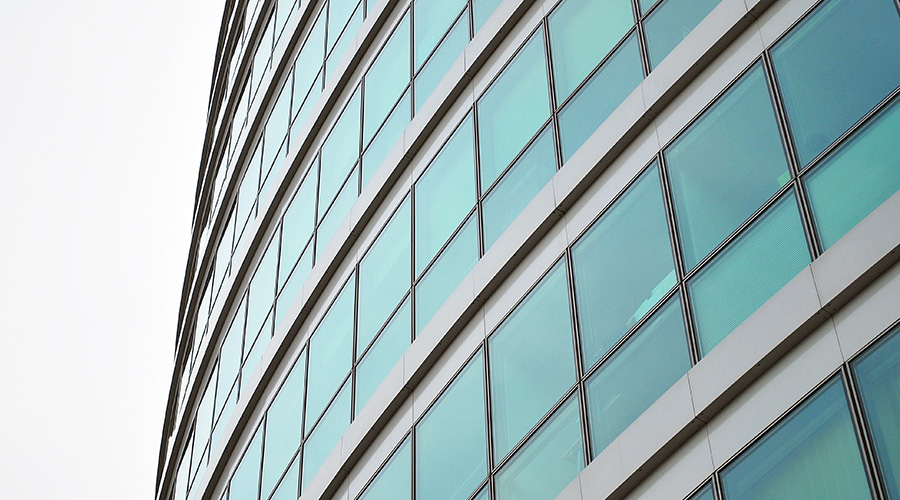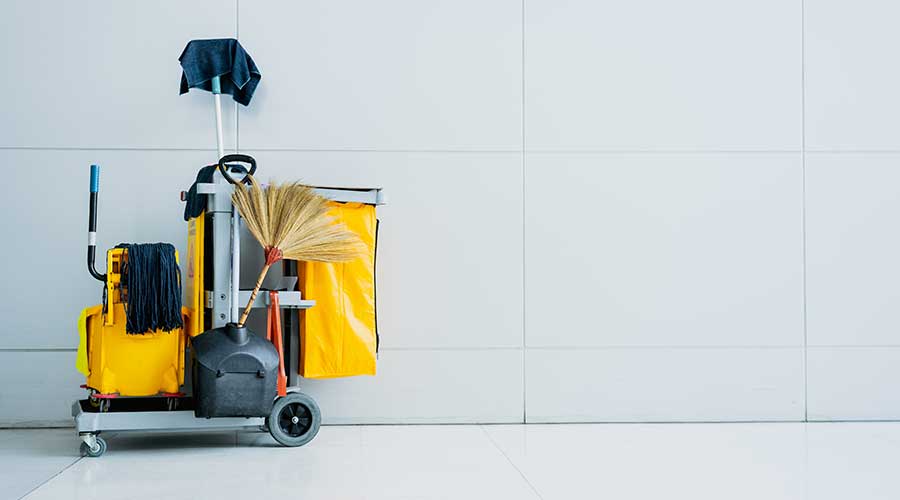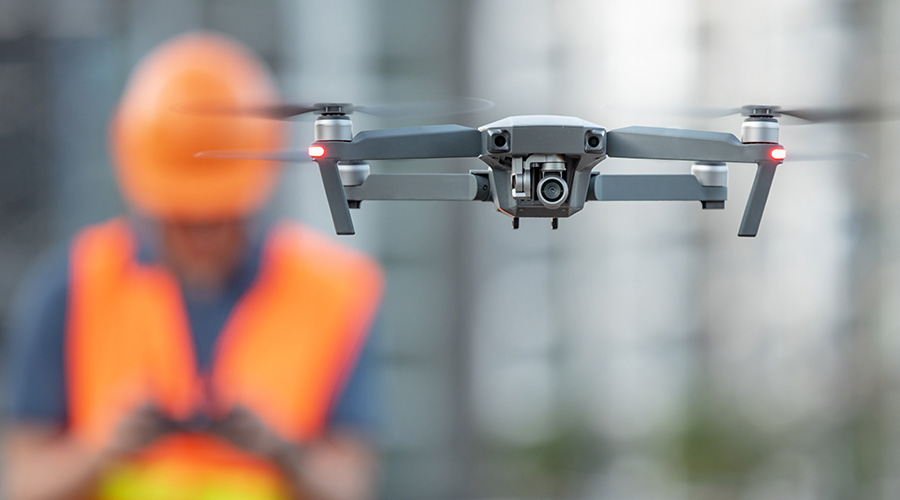Managers Discuss Strategies That Boost Productivity
OTHER PARTS OF THIS ARTICLEPt. 1: This Page

Scott Kennedy,
Director of Operations,
Central Bucks School District,
Doylestown, Pa.
|

Joe Amico Sr.,
Plant Operations Manager,
Parkland Medical Center,
Boston
|

Darin Hargraves,
Director of Operations,
Anchorage (Alaska)
School District
|
Maintenance and engineering managers are responsible for the efficient, effective operation of institutional and commercial facilities containing complex products and systems. But in many cases, worker productivity — not equipment — is a tougher challenge for managers. While equipment responds predictably to efforts to keep them operating efficiently, technicians too often do not. In this roundtable discussion, managers discuss their attempts to maximize the amount of work technicians perform.
Where does worker productivity fall on your list of management priorities?
AMICO: It's extremely high. When we do the (full-time equivalencies), we categorize them as productive. I look at it this way: They are not just here for eight hours a day. They are productive for eight hours a day.
KENNEDY: It's a huge priority for several reasons. We've had cutbacks of budgets and staff over the last several years, so all of us need to do more. When our work isn't done — whether it's cleaning or mechanical repairs or grounds work — it's very noticeable. The other issue is outsourcing in public schools, which at least in Pennsylvania is something that's floating around. So we stress with our staff that we need to be productive and make sure everything is running smoothly to prevent outsourcing from coming into our district. We're all against that.
HARGRAVES: It's becoming a higher priority because we structure our staffing around key performance indicators. What they tell us is that maybe we need to look at some alternative types of staffing — maybe half-time employees at some schools, which would give us the number of hours that are required to clean that building without necessarily overdoing it. One of the things that is becoming more important to us is to find out where we sit in terms of our key performance indicators. There are a lot of them, but one of those that really affects us is the custodial workload, or how productive our workers are out in the field. The more productive they are, the greater the return on our investment is.
What formal processes do you use to measure technician productivity?
HARGRAVES: We've benchmarked ourselves against some key performance indicators. This is data directly related to the top 100 schools in the nation. We're calibrating ourselves against other schools of like size to make sure that we're at least within the range.
AMICO: Every Thursday, I post a 30-day-overdue list. The work orders I receive all have a time attached to that particular task. So if it's a preventive maintenance or a corrective maintenance item, it still has labor attached to it. On top of that, I look at the routine items, and if it says that it took someone 30 minutes to do a particular item, and the next month it says 30 minutes, I circle it, and I try to go over with my staff that particular item. I want to make sure it's really taking them 30 minutes. I also look at repeat items. For instance, if there is a particular item, like a condensate pump, that comes up, I want to make sure we're not repairing it in the next three to six months. I want to make sure we're doing things correctly and efficiently and not having to redo something.
What steps has your department taken to increase productivity?
HARGRAVES: Training is a big part of our program. The other thing is the proper equipment. We're using a lot more of the high-productivity pieces of equipment. We've invested in (riding floor-care equipment), and when we did that a few years ago, we increased the productivity of our existing staff by the equivalent of about 16 employees. We also use a lot of backpacks (vacuums).
KENNEDY: With our mechanics, we've done a couple of things. One is that, using (computerized maintenance management software), we allow them to self-direct their work. We don't give them assignments daily or even weekly. We allow them to look at their work orders — they can access them anywhere in the district — and they can plan their day and their week. That gives them more accountability, a little more responsibility, and a little more freedom. But we monitor that in case there are priority work orders that they might not prioritize as high. So we watch them, but we do let them self-direct their work, which leads to productivity.
AMICO: I look at the technology we have and say, "Why are we not doing things like replacing incandescent bulbs with LEDs?" There are a lot of things I look at daily and say, "Why are we doing this so much? What can we do to streamline some of these routine PM tasks?" Also, I've really emphasized the need for getting PMs done, not in the last week of the month but the third week of the month, so that I'm receiving those PMs one week sooner. I also meet with my staff every week, and I talk with them on a routine basis. Communication has been a key part of increasing our productivity.
What productivity strategies have been most successful?
AMICO: Parts organization has been hugely responsible for improving productivity. It's something I worked on at my last job. When you know where everything is, it makes it a whole lot easier when the job gets generated to schedule it and to complete it, knowing that you have the part and knowing where it is, or at least where you need to get the part.
HARGRAVES: The easiest fix, the ongoing fix is going to be the proper tooling. The riders (floor-care equipment) have provided us a lot of productivity gains, and they've been a lot less fatiguing for our employees. The backpack vacuums made us a whole lot more efficient. Training also has been important to help people understand the proper processes. We don't want to spin our wheels. We don't want to have wasted motion if we can help it. With the proper tooling and the proper training, we get maximum efficiency.
What role has technology played in worker productivity?
KENNEDY: It has definitely increased productivity for a number of reasons. (The CMMS) can be accessed from anywhere in the district and even from home. Our HVAC mechanics can access the building-control system on their laptops traveling from building to building and from home. So if we have a heating or cooling issue, one of the supervisors or mechanics can troubleshoot the problem from home. We also have an electronic database of all of our (mechanical) drawings that are accessible from anywhere in the district. So if you're a plumber working at a high school, you can pull up the plumbing drawings to see where the clean-outs are and where the pipes run. Some of our mechanics have laptops and smartphones provided by the district that are critical to their roles. All of our head custodians have mobile phones with texting capabilities, and we can text or e-mail from our desktops to a group of them at one time. A lot of times, the custodians are not at their desks to call them. So if I can send them a text, they can call me later (and I can tell them), "You can expect the delivery soon," or, "The contractor is going to arrive in a few minutes to work on your boiler." It just streamlines everything.
AMICO: I've worked with a number of different CMMS systems and implemented two. I implemented the use of labor hours for all the work orders that we do here, so now we can use reports. The other thing is our building-automation system. I have a person walking around on a regular basis to look at equipment, and I've used the building-automation system to print up the data for the items that staff had previously checked. So instead of walking around and taking data for every component that you're looking at, the automation system is now printing a report daily, and you're just doing the visual. And you're able now to concentrate more on the audible. I've told them they need to be more attentive to listening to the equipment and not just looking at it so they can learn that this bearing is going to go, for example. We also utilize alarms. We have a system where if something goes to an alarm, it sends an e-mail.
Have you taken steps to improve productivity that did not work?
KENNEDY: I can't really think of anything. When we introduce any of these things we've been doing, we do it as a group and as a team. I don't make these decisions on my own. We run it through its paces with tabletop planning. We can't really afford to implement things that we don't think are going to work, due to budget constraints. We've made some really calculated decisions on what things we're going to implement, so they've all worked out pretty well.
AMICO: It's hard to tell people to take initiative and be very ambitious, and then stop them and say, "This is the direction I want to go instead." Doing that can affect the person's motivation. But sometimes, as the manager, you're caught because the priorities changed, whether it be a production issue or a patient-care issue, and now you're focused in a particular direction, while the staff doesn't necessarily see that. Interfering with an initiative because of work priorities sometimes stalls productivity because now you have to take time to communicate after the fact that this was the direction you really were trying to go. But you didn't have the opportunity to fully explain it. That tends to be a pretty popular item that can stall productivity.
What tactics have you used to motivate employees to be more productive?
KENNEDY: With the custodians and grounds people working out in the schools, we communicate with them as often as possible about why things are happening. They hear about budget cuts. They hear about changes because of the economy — how we're doing things, things we're not doing. (Communication) keeps them in the loop as far as what's going on. We're constantly pushing out information to let people know what's going on around the district, even if it doesn't directly affect them. We recognize people in all three of our categories, from a simple "thank you" to recognizing them at a school board committee meeting. And we have an annual district event where we give out awards. Occasionally, some of our staff have received those rewards. But I think the day-to-day "thank you" is just as important as the more formal awards because you can do it more often. It's more sincere, and the guys know you're taking time out of your day to go over and thank them for something.
AMICO: In tough economic times, trying to make ourselves more valuable has been a key contributor to motivation. When you are able to show that your staff can do more than you typically rely on them to do, it allows you to not have to outsource as much. And they like being able to be relied upon for the things that other companies sometimes just outsource.
Related Topics:














